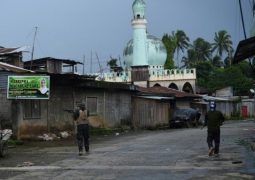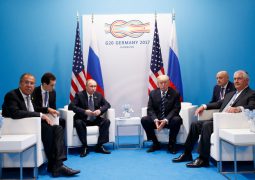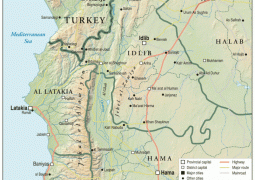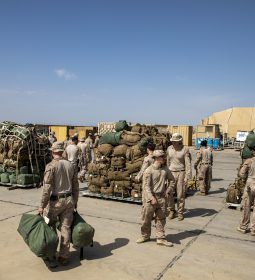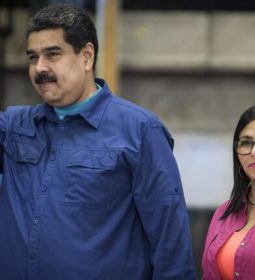Parallel Afghanistan summits edge towards agreements on ceasefire, US withdrawal
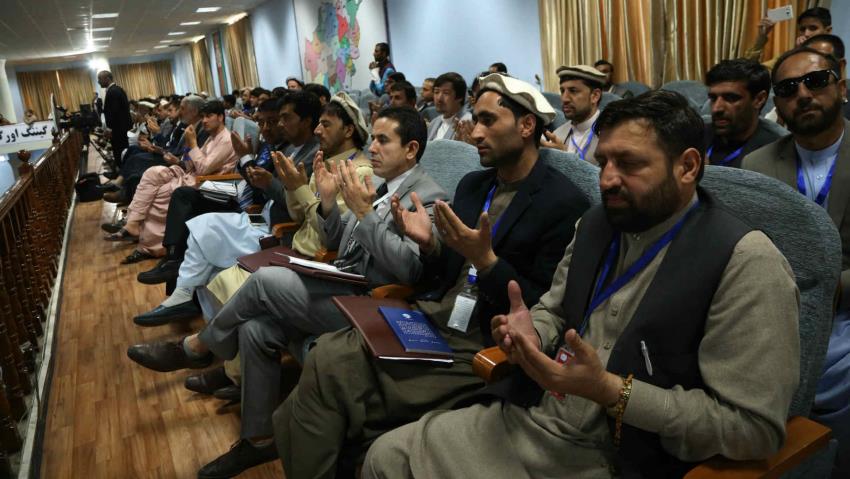

The New Arab
Parallel Afghanistan summits edge towards agreements on ceasefire, US withdrawal
Participants pray during first day of Kabul’s ‘loya jirga’, or grand summit [Getty]
This week’s Kabul summit grand assembly, saw more than 3,000 religious and tribal leaders, politicians and representatives from across the country gather under tight security to discuss the possibility of peace.
While the full results of the summit may not be announced until Friday, several committee leaders said they wanted to see an immediate pause in violence, which has continued apace across Afghanistan even with various peace summits taking place.
“Every day, Afghans are being killed without any reason. An unconditional ceasefire must be announced,” said Mohammad Qureshi, head of one of the jirga’s many committees.
Huge swathes of Afghan society worry that if the US does make a deal with the Taliban, the militant Islamists would try to seize power and undo advances in women’s rights, media freedoms, and legal protections.
The Taliban has steadfastly refused to talk to the Afghan government, which it views as a puppet regime.
That means that even if the US and the Taliban can agree to a deal to end the war and a timetable for an eventual troop withdrawal, the insurgents must still forge some kind of an accord with Afghan politicians and tribal elders before an enduring ceasefire could kick in.
“We don’t want such a peace that women’s rights are not respected, freedom of expression are not ensured, elections are not held,” committee member Faizullah Jalal told the summit.
Several delegates also rejected Taliban and opposition calls for an interim government when President Ashraf Ghani’s term expires this month.
“It is you who will show the government the way towards peace and the government will do what you demand,” jirga chairman Abdul Rab Rasul Sayyaf said.
“No one will impose anything on you.”
Several opposition figures had boycotted the assembly, complaining it amounted to a political rally for Ghani, but Sayyaf said the summit was not aimed at supporting any particular candidate for the September presidential elections.
The loya jirga is a centuries-old tradition in Afghanistan that has been convened at times of national crisis or to settle big issues.
Taliban meets with Washington
Meanwhile, a Taliban delegation, led by negotiator Sher Mohammad Abbas Stankzai met with a US negotiating team in Qatar, for the second day of the sixth round of talks to resolve the 17-year-long conflict.
Sources close to the negotiations told The New Arab this round of negotiations was set to run for just three days.
“The new round of negotiations focuses on two points: the withdrawal of foreign forces from Afghanistan and ending the use of Afghan territory as a base to fight other countries,” the spokesman for the Taliban’s political bureau, Mohammad Suhail Shahin, told The New Arab.
The two points were already agreed upon in the previous round of talks in March, however this round, a timetable will be negotiated for the withdrawal of US and other foreign forces from Afghanistan, as well as a guarantee not to use Afghan territory as a base against other countries.
The Taliban has refused to negotiate a cease-fire before reaching an agreement with the US side on these issues, while also refusing to communicate with the Afghan government.
The deputy head of the political bureau of the movement, Mullah Abdul Ghani Baradar, met with Zalmay Khalilzad in Doha on Wednesday before the start of the new round of negotiations.
In a statement released by the Taliban, Baradar said that agreement on these two issues “would open the way to resolving other aspects of the problem, and the Taliban could not discuss other issues before agreeing on these ones”.
The fifth round of negotiations in March ended on a somewhat positive note from both sides.
The US State Department said that “significant progress” has been made between the two sides.
“The Taliban have agreed that peace will require both sides to fully deal with four key issues – safeguards on counterterrorism, the withdrawal of foreign forces, dialogue among Afghans and a comprehensive ceasefire,” State Department spokesman Robert Paladino said in a statement.
Agencies contributed to this report.
- Previous US security concerns force Cosco-owned Orient Overseas to sell Long Beach port in California
- Next Pakistan’s Fake Degrees Investigating how Pakistan’s degree mill profits from selling fake qualifications to people around the world.




